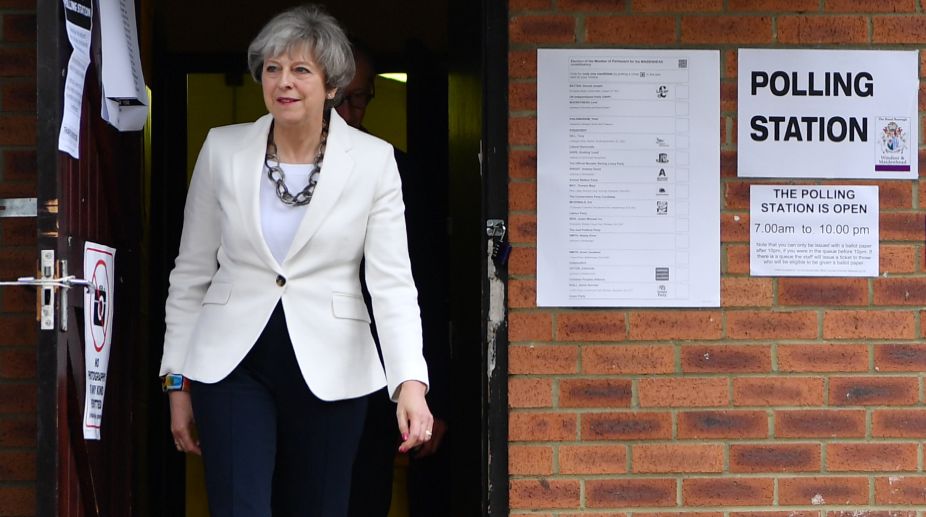Britain is reeling as it goes to polls this morning (8 June). It is testament to the resilence of democracy in its fountainhead that Saturday night’s outrage in London ~ the second after the Manchester butchery a fortnight back ~ did not lead to a cancellation of the polls, though the parties had once again suspended campaigns.
By that token, the electoral engagement, on which must now hinge a lot besides Brexit, has suffered a severe jolt yet again.
Advertisement
It might be an exagerration quite yet to aver that terrorism is fast graduating to a way of life in Britain; but the fact that ISIS took close to 48 hours to claim responsibility reaffirms a hideous extension of tentacles in the month of Ramzan and when governance in Whitehall is in pre-election limbo.
Prime Minister Theresa May’s robust presentation at the entrance of 10 Downing Street might on the surface sound rhetorical, but the core of the crisis has been encapsulated in three words ~ “Enough is enough”.
Implicit in her address was a dramatic shift in policy to thwart terror, with the focus on countering ideology rather than terrorism per se.
The scourge of terrorism has been horrendous in Britain. May has drawn a fine distinction between thought and action in the two years since the ISIS massacres have convulsed the world, and the profundity of her argument may or may not be readily agreeable to the voter, the parties, and the government.
The Prime Minister has linked the London Bridge massacre, the Manchester suicide bombing, and the Westminster outrage in March to a “single evil ideology of Islamist extremism”.
While there can be no dispute with her contention, she may have attempted to convey a message to her opponents. Pre-eminently, Jeremy Corbyn is believed to be tolerant of extremists and Ukip betrays crude Islamophobia. Hence her cavil that there is “far too much tolerance” of Islamist extremism in Britain today; hence also the stress on “some difficult and often embarrassing conversations”.
For all that, her presentation had no reference to how Britain’s policy can dramatically be reshaped, if at all. Markedly, she has underlined the role of the internet and the need to “regulate cyberspace to prevent the spread of extremism and the planning of terrorism”.
For the first time, she has publicly called for international cooperation in bringing forward more red tape to cyberspace. Her suggestions can be contextualised with the Investigatory Powers Act 2016 which expands the powers of the Government over the internet.
Beyond the proposed technological initiative, it is the “single evil of ideology” that confronts Britain and large parts of the world today.
Whether in the Arab world or Europe, there has been far too little of counter-mobilisation against the ideology











